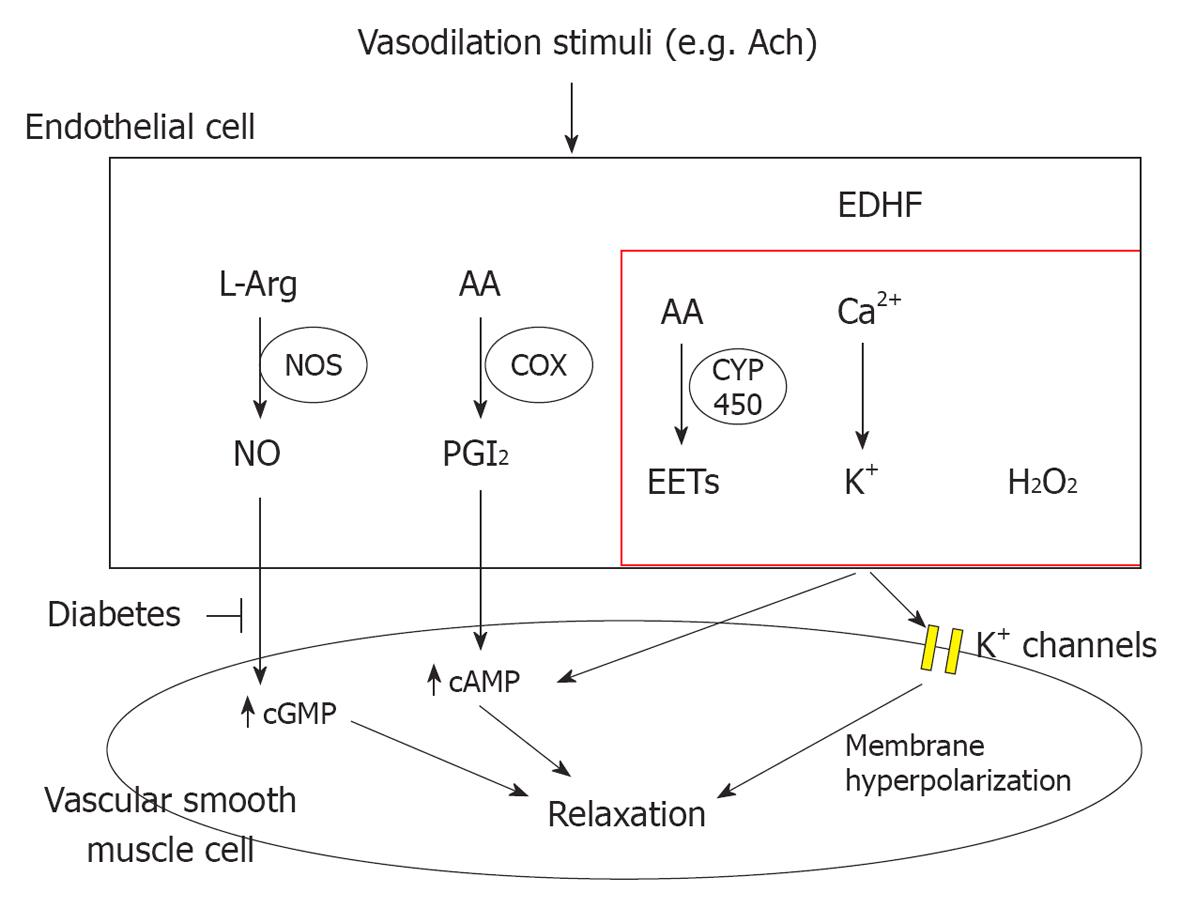Copyright
©2011 Baishideng Publishing Group Co.
Figure 1 Endothelium-dependent vasodilation occurs in response to stimuli that induce the endothelial production and/or release of factors that ultimately cause the relaxation of the adjacent vascular smooth muscle.
These factors include nitric oxide (NO), prostacyclin (PGI2), and endothelium-derived hyperpolarizing factor (EDHF). Depending on the species and vascular bed studied, the nature of the latter has been narrowed to include epoxyeicosatrienoic acids, K+ ions, H2O2, and the myoendothelial junctions. In diabetes the presence of endothelial dysfunction is mostly characterized by a reduced bioavailability of NO. The effect of diabetes on EDHF is controversial, but a number of studies suggest that EDHF-dependent signaling may be increased therapeutically to ameliorate endothelial dysfunction. ACh: Acetylcholine; AA: Arachidonic acid; NOS: Nitric oxide synthase; COX: Cyclooxygenase; CYP 450: Cytochrome P450.
- Citation: Gao X, Martinez-Lemus LA, Zhang C. Endothelium-derived hyperpolarizing factor and diabetes. World J Cardiol 2011; 3(1): 25-31
- URL: https://www.wjgnet.com/1949-8462/full/v3/i1/25.htm
- DOI: https://dx.doi.org/10.4330/wjc.v3.i1.25









